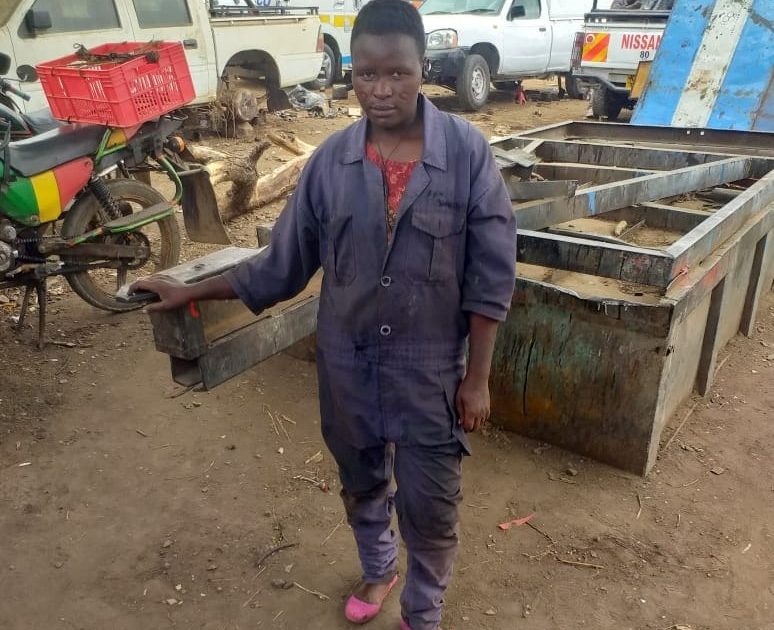‘No work is defined categorically for men or women, provided it helps you in putting food on the table and sorts out your other needs’, These are words from the mouth of a 26-year-old Abigail Kirerei, a mechanic in Kajiado town.
“Ever since I was a child, I have always preferred roles that society defined as for men and carried them out passionately, unlike those which are defined for girls and women,” narrates Kirerei.
She said whenever she is at home, she preferred herding cattle and sheep rather than doing girlish house chores like her sisters.
Abigail said when she turned 18, she started working as a laborer at Simba Cement, due to the circumstances at home.
“I left school at class three since school fee was a major challenge. I stayed at home for years looking after my younger siblings as mum went to look for vibarua. When I was old enough, I sought permission from mum to work on mjengo, so as to help her feed the family,” said Kirerei.
Her mum, Abigail said, agreed albeit reluctantly as she reminded her that she was a girl and needed to find jobs that are best suited for girls her age and not those for men.
“I worked at Simba Cement for several months and then landed a scholarship from Big Life Foundation, where I studied Wielding at Namelok Polytechnic for three months. After the training, I got employed as a wielder, but left soon after I started developing eye problems,” she stressed.
Luckily, she said, Big Life Foundation, sponsored her again to undertake Motor Vehicle Mechanics training, but due to her level of education, she was not able to complete the training.
But with the little knowledge she had acquired, determined Kirerei sought employment at a mechanic yard that was owned by two brothers in Kajiado town.
“I walked into their garage while they were working on a car and helped them fix it. They immediately hired me after they saw I was capable. That aside, they trained me without a fee on areas I was not well versed with,” reminisces Kirerei.
Kirerei thanked the brothers that she identified as Kuria and Ng’ang’a for believing in and giving her a chance to work with them despite her little education.
The work, she however regrets, comes with challenges though as most men who take their cars to the garage, stubbornly believed that field belonged to men.
“Most of them despise me because I’m a woman, and tend to think that I will not work on their cars well because of my gender,” complained Kirerei.
“A few of them are, however, eager to see whether I can fix their cars and with such curiosity, I get to work and earns my daily bread,” she adds smiling happily.
The determined mechanic is hopeful that she will be able to save enough money from her job and get back to school so she can complete her Motor Vehicle Mechanic’s certificate.
By Diana Meneto





